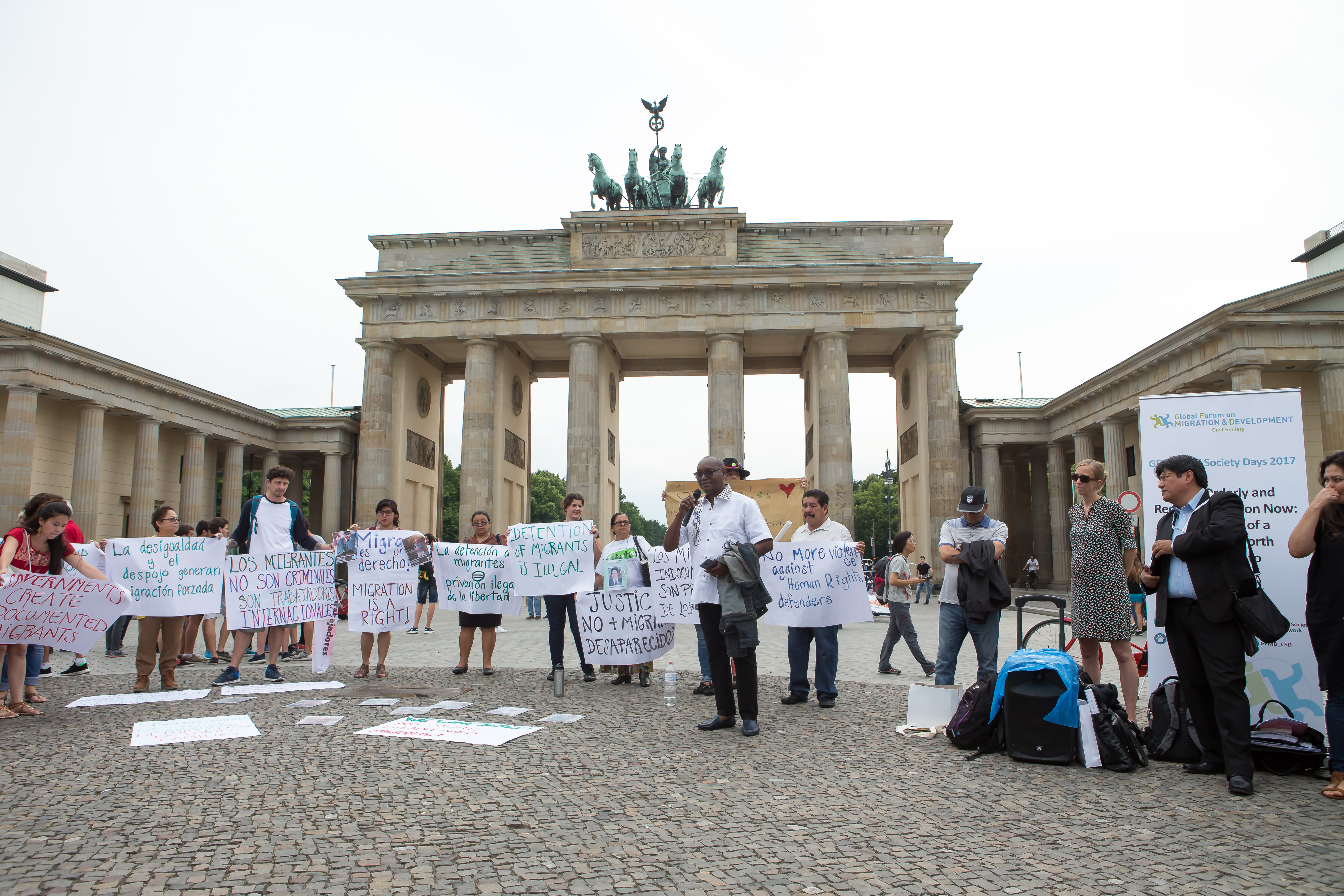|
Ms. Maas continued: “A 10th Anniversary is a time for celebration and contemplation. We live in a radically different world compared to 2006. Financial crises, rising inequality, spiraling conflict and violent extremism, further natural disasters and climate change have all posed extreme challenges to the global community over the past decade.
As a result, the number of forcibly displaced is at an all-time high. More and more migrants and refugees are dying en route, families are separated, and borders are closing, even to those forced to flee. Children are held in detention for lack of required documents, migrant workers’ rights are being violated in myriad ways, racism and xenophobia are on the rise, and many in society feel anxious, threatened and left behind.
Ms. Maas expressed both confidence in solutions within reach, and urgency.&nbnbsp; “We need bold solutions”, she said. The recent report of Sir Peter Sutherland, writing as the UN Secretary General’s Special Representative on Migration, “is filled with solutions”, she noted, “and so is the recent report of the Special Rapporteur on the Human Rights of Migrants”, Mr. Francois Crépeau.
“But, implementation cannot wait. Families must be reunited, urgently; children need to be taken out of detention, now; the hard labour and clear rights of migrant workers must be respected, today; solidarity funding is needed without delay. What we need -is, to use a great German word, a sense of ‘tatendrang’: a zest for action.”
The two civil society days Thursday 29 June and Saturday 1 July featured over 80 speakers animating debates—half participating in the GFMD for the first time. 15 roll-up-your-sleeves break-out sessions focused on elements that civil society thought essential for the new Global Compact, including protection of children and other vulnerable migrants on the move and at borders; fair treatment of migrants in the workplace; fighting xenophobia and promoting social cohesion with welcoming societies; and building safe migration opportunities especially for people forced to migrate—by persecution, lack of work, extreme poverty, natural disaster or climate change at home—in order to save their lives or families.
Friday 30 June brought all 500 government representatives together with the 300 from civil society, to discuss implementation of existing rights, standards and practical mechanisms to achieve these goals. Presenting the recommendations from the civil society deliberations, Ms. Maas urged more systematic implementation of existing mechanisms like “best interest determination” processes whenever child migrants are apprehended; more consistent differentiation and referral of the range of migrants in vulnerable situations, especially during their journeys or on arrival; ethical recruitment procedures for migrant workers; orderly departure programmes for refugees and migrants; and new labour migration and other channels for human mobility, including family reunification and community-based private sponsorship programmes.
Ten ‘tea tables’ Friday evening then saw nearly 100 leading governments and civil society delegates informally discussing these same themes and solutions.
“I count on you, civil society delegates”, stated Ms. Louise Arbour, who recently succeeded Mr. Sutherland as UN Special Representative of the Secretary General on International Migration. “We need bold solutions and practical ideas. We need to focus on the implementation of commitments.”
Read Wies Maas' full speech to the opening of the Government Days, 28 June and her address with 10 recommendations to the opening of Common Space, 30 June; Also take a look at the CSD and Common Space reports.
Top photo by Manuel Frauendorf
|
